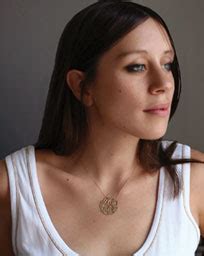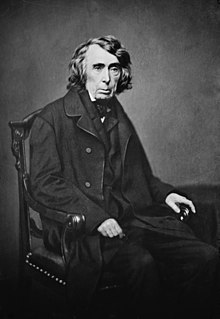A Quote by Edith Wharton
One of the surprises of her unoccupied state was the discovery that time, when it is left to itself and no definite demands are made on it, cannot be trusted to move at any recognized pace
Related Quotes
Whenever a single definite object is made the supreme end of the State, be it the advantage of a class, the safety of the power of the country, the greatest happiness of the greatest number, or the support of any speculative idea, the State becomes for the time inevitably absolute. Liberty alone demands for its realization the limitation of the public authority, for liberty is the only object which benefits all alike, and provokes no sincere opposition.
And what physicians say about disease is applicable here: that at the beginning a disease is easy to cure but difficult to diagnose; but as time passes, not having been recognized or treated at the outset, it becomes easy to diagnose but difficult to cure. The same thing occurs in affairs of state; for by recognizing from afar the diseases that are spreading in the state (which is a gift given only to the prudent ruler), they can be cured quickly; but when, not having been recognized, they are not recognized and are left to grow to the extent that everyone recognizes them, there is no longer any cure.
Another discovery which came out of my investigation was the fact that when one gives his or her order to produce a definite result and stands by that order, it seems to have the effect of giving one what might be termed a second sight which enables him or her to see right through ordinary problems. What this power is I cannot say; all I know is that it exists and it becomes available only when one is in that state of mind in which he or she knows exactly what one wants and is fully determined not to quit until he or she finds it.
The most remarkable discovery made by scientists is science itself. The discovery must be compared in importance with the invention of cave-painting and of writing. Like these earlier human creations, science is an attempt to control our surroundings by entering into them and understanding them from inside. And like them, science has surely made a critical step in human development which cannot be reversed. We cannot conceive a future society without science.
There is the great, silent, continuous struggle: the struggle between the State and the Individual; between the State which demands and the individual who attempts to evade such demands. Because the individual, left to himself, unless he be a saint or hero, always refuses to pay taxes, obey laws, or go to war.
He chose a certain path in life, it proved to be a misguided one, but there, he chose it, he can say that at least. As for myself, I cannot even claim that. You see, I trusted. I trusted in his lorship's wisdom. All those years I served him, I trusted I was doing something worthwhile. I can't even say I made my own mistakes. Really - one has to ask oneself - what dignity is there in that?
I'd trusted my fan base, I'd trusted the my gut, and I'd trusted the music. ...the real experts are out there in front of you every night. They're the ones buying the tickets and coming to the shows. They're the professionals in this business, and they're the only ones who can tell you which songs have the ability to move them.
It is an established principle of jurisprudence in all civilized nations that the sovereign cannot be sued in its own courts, or in any other, without its consent and permission; but it may, if it thinks proper, waive this privilege, and permit itself to be made a defendant in a suit by individuals, or by another State.






































